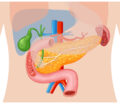
Cancer is one of the most common and most feared medical conditions. Modern lifestyle choices and dietary habits have significantly contributed to the increased incidence of cancer. However, by altering and adopting certain lifestyle practices, we can prevent and reduce the risk of developing cancer.
Cancer prevention is an essential aspect of overall health management, especially concerning gastrointestinal (GI) cancers. These cancers affect various parts of the digestive system, including the stomach, liver, esophagus, pancreas, colon, and rectum. While some risk factors, like genetics and age, are beyond our control, lifestyle choices play a significant role in reducing the risk of developing GI cancer.
In this article, we will discuss several strategies in detail to consider for living healthily and preventing cancer.
Gastrointestinal Cancer
GI cancers include a range of malignancies affecting the gastrointestinal tract. These include:
- Esophageal cancer
- Stomach cancer
- Liver cancer
- Pancreatic cancer
- Colorectal cancer
Each type of GI cancer has unique risk factors, symptoms, and treatment approaches. Prevention strategies can be similar but may also vary depending on the type of cancer.
Ways To Prevent and Reduce the Risk Of Developing Cancer Include:
Follow Healthy Dietary Habits
A nutrient-rich, balanced diet is key to a healthy lifestyle. Focus on incorporating a variety of fruits, vegetables, whole grains, and legumes into your meals, as they are rich in antioxidants, vitamins, and minerals that help protect against cancer. Maintaining a balanced gut microbiota through dietary fiber and probiotics may reduce the risk of colorectal cancer. Limit the consumption of red and processed meat, as it is linked to an increased risk of colorectal cancer.
Maintain a Healthy Weight
Being overweight or obese increases the risk of developing various cancers, including esophageal, pancreatic, and colorectal cancers. Aim to exercise daily to maintain a healthy weight and reduce the likelihood of developing obesity-related cancers.
Limit Alcohol Consumption
Limiting alcohol consumption is essential for reducing the risk of various cancers, including GI cancer. Whereas, excessive alcohol intake is a risk factor for several GI cancers, including liver, esophageal, and other gastrointestinal cancers.
Quit Smoking
Quitting smoking significantly reduces the risk of several cancers, including esophageal, stomach, and pancreatic cancers. Tobacco contains carcinogens that damage the gastrointestinal tract. Stopping smoking is one of the most effective steps to lower your GI cancer risk and improve your overall health.
Protect Yourself from the Sun
Protecting yourself from the sun is essential for overall cancer prevention. Excessive UV exposure can weaken the immune system, making the body more susceptible to various cancers, including skin and GI cancers. Use sunscreen, wear protective clothing, and seek shade to reduce the risk.
Stay Hydrated
Staying hydrated is essential for overall health and cancer prevention. Adequate water intake supports digestive health, helps eliminate toxins, and maintains optimal bodily functions. Drinking enough water can reduce the risk of colon and other GI cancers by promoting a healthy digestive system.
Regular Health Check-ups
Regular screenings and health check-ups are essential for diagnosing cancer early, when it is most treatable. Individuals at high risk, such as those with chronic hepatitis B or C infections, should undergo regular screenings. Be proactive about your health by scheduling routine screenings according to your age, gender, and family history.
Vaccinations
Certain cancers, such as cervical cancer and liver cancer, are caused by the Human Papilloma Virus (HPV) and Hepatitis B virus (HBV), respectively. Hepatitis B virus (HBV) infection increases the risk of liver cancer. Vaccination against HBV can significantly reduce this risk. Human papillomavirus (HPV) is associated with cancers of the cervix, anus, and oropharynx. Vaccination is effective in preventing HPV-related cancers.
Manage Chronic Health Conditions
Managing chronic health conditions is vital for reducing cancer risk. Proper control of diabetes, inflammatory bowel disease, and other chronic conditions can minimize inflammation and other factors that contribute to GI cancers.
Visit Airavat Cancer Care, The Gastrointestinal Cancer Surgeon in Ahmedabad!
Living healthily and taking proactive steps to prevent GI cancers significantly enhances overall well-being. By integrating the above strategies into daily life and seeking regular medical care, individuals can minimize their risk of developing GI cancers and lead healthier, longer lives. Consult at Airavat Cancer Care, for personalized advice on cancer prevention and comprehensive Gastrointestinal cancer treatment in Ahmedabad.






